Is it aluminum or aluminium? It might not make a difference to you, but to Joe Tsao, it matters. Hearing a man pronounce the extra syllable is what initially inspired him to explore design, after moving to and growing up in Apple-Tino, by way of Taiwan and Canada.
Today, Joe is the founder of Toolhouse, a research lab reinventing production and manufacturing through the lens of play and personalization. He also runs Creative Advisory, a product imaginarium for startups. I got a chance to sit down with him and we dove off the deep end, while he vaped on a substance he claims takes him further than a G-Wagon. In the Zoom cloud, we pondered what aliens are playing on their iPods, the importance of kids, the evolution of language and labels, the hype cycle of hardware, video games and the pinnacle of technology: the human body.
Whoosh.
What better way to start off than with an existential-crisis-inducing question: Who is Joe? What’s your background?
I went to school in San Francisco and LA for industrial design, but I don't think I learned a whole lot from school. Matter of fact, I've had a lot of un-programming to do after school.
I interned at Google when Google was first building out its hardware team, and from then, I jumped to the other side of the spectrum, working in an artist studio in Stockholm, Sweden. I eventually linked up with a crew in 2018 at a startup and did a lot of wild stuff with them, namely with the Yeezy camp. Ye had an indelible process to creativity that helped to further un-program all of the dogmatic and inflexible ways of working that I learned from institutions. I'd say that's really where I learned.
I don't do just industrial design because it's not interesting to me when removed from the context – to me, the context is the whole point. I don't like the word design, but I know that it's a useful handle for people to grab and hold on to. At the end of the day, I’m an engineer. It’s a more practical way of looking at creativity.
I work on the software side of design and I see the same transition: design engineer, creative engineer and product engineer are taking over. It feels like “designer” is getting left behind with the Silicon Valley hyper-minimalist vibes.
That’s how things go. There’s a hype that inflates to obsession and that obsession leads to oversaturation and that leaves a bad taste in people's mouths. The unfortunate thing about it is that at one point design was just a more practical way to explain art or an artist.
What is Toolhouse? I glanced at the whitepaper you put out in January, but could you talk me through the vision?
For hardware to change at the magnitude it needs to, the infrastructure that produces it must change and that’s the long idea behind what Toolhouse is. I was tired of doing all of this work in hardware, knowing all the steps to manufacture a single prototype, and never getting the satisfaction of eating the plate that I worked my appetite up for, for so many projects. My friend, Maxime told me, “You need to get a 3D printer.” I thought 3D printing was for losers at college, but he was right.
AI is using databases to translate text into 2D images and now they're starting to turn 2D images into 3D objects. None super great so far, but the ball is rolling, and you can extrapolate that trajectory. Once we can train a model to not just make 2D images but 3D objects, it will completely shift how we approach building a factory.
Memoji is one of my favorite apps of all time, and it's not even a standalone app, it's a function within an app. If the atoms catch up to the bits, and the physical world matches the pace of hardware, you can imagine a version of the Memoji app as Foxconn but for the next generation of physical things. Imagine that you can make a variation of a shoe in a way that doesn't require you to train as a designer or work as a cobbler – that you can just play a little game.
What does the word “hardware” mean to you?
Hardware is inextricable from software – the word itself implies the other. When you zoom out to look at the pieces then those bodies together make a product.
Hardware, as we see it today, is just a position on a pendulum. And if you look at where the pendulum is swinging, hardware will disappear. I believe good technology is indistinguishable from magic. We have laptops, we have iPads, we have iPhones, we have the Apple Watch and all these tiny little AI tools that are wearable now, and once you get comfortable with wearing these things, and sticking them in your pocket as an extension of your body, then you’ll eventually be more comfortable with them disappearing into your body.
The human body is the ultimate technology.
What’s your take on Rabbit… Humane… some of the new hardware companies that are receiving hype right now? Overrated? Underrated?
The important thing to me is that an opinion is being formed again. For a long time, everyone and everything was under the shadow of Apple. They built a tremendous empire, all respect to that engine. But an opinion has the light of day again and it feels like 1999 when people were discovering the internet. There’s a multiplicity of opinions and devices emerging like when we had Nokias and we had LG Chocolates and we had LG Sidekicks and we had the Motorola Razrs. And it’s not tied to the App Store or iOS.
But it's not natural enough yet if we’re talking about Humane. At the end of the day, something like the iPhone makes a lot of the peripheries disappear because, like Steve was saying, it's a telecommunications device, it's a web browser, it's a music player. He kept repeating it until people realized it's not three separate devices, it's one and it's one that does all of these things in such a natural way that it eliminates the need for those peripheries.
Potentially very naively, the buzzing sensation in the air right now feels like there may be an emerging renaissance. How do you see the moment though… is there one?
I don't see a renaissance yet, but I really do hope it's real – I hope that it happens. I think we're near the other end of the pendulum and we're tired of the year after year miniscule changes to the iPhone.
I think it's great that humans have the tendency to get bored and want to evolve, but there needs to be some fundamental infrastructure changes. I hope the small offerings of AI devices – like Rabbit and Humane – will begin to shift that.
That's a good gut check. There’s talk about it on Twitter but language gets co-opted so fast, it’s hard sometimes to sort through and understand what’s real and what’s not.
I came across this tweet along the lines of, leave social media for one day, and you find out you missed out on everything, leave social media for a week and you find out you missed out on nothing.
For a subculture to thrive in the everything-everywhere-all-at-once society we live in, it requires a little bit of stubborn-ness or selfish-ness. You need to be able to exist under wraps without a need for validation or a need to be seen, because subcultures to me are like time capsules; they’re like pockets that stand outside of the mainstream cycle of time. If the renaissance is true, we’ll have more and more pockets of people emerging from those time capsules, where they're detached from the mainstream in a healthy way.
So, you’ve gotta couple things you’re personally associated with, one of them is Toolhouse but another one of them is Creative Advisory. Can you tell me more about what that is?
The name Creative Advisory actually started as an inside joke from a project that Maxime and I did together. But essentially, it’s a place for me to put out work.
It’s a lot of the work that I feel conflicted about, in the sense that anything from the past to me is like a skeleton I'd rather just bury in the back. That's how I looked at everything I did because a lot of those projects, save for a very small handful, only got produced in the Are.na production cycle.
Speculation felt icky but I realized that the ultimate product is people and that the best way to meet people is to not be afraid to show what you might consider failures. People might say, this is interesting and useful, and it takes a conversation somewhere.
We live in an era now where there’s greater accessibility to designing in speculative spaces and making it feel tangible – making it feel real. Imagine you were asked to create speculative technology for a new sci-fi show, what would you create for it with the hope it comes to fruition in the next 10-20 years?
I think the core of human nature is two things: autonomy and mobility. Everything I do comes down to that, whether it's mobile self care products or a mobile home.
I think technology, good or bad, propels us in that direction. Mobile phones allow us to be more mobile, because we're not wired to home phones and the cable lines they used to have. And they allow us to be autonomous because they integrate our calendars, rolodex, and music into such a small footprint.
What we want our technology to be is almost like a compass. You can use a compass to direct yourself but all you need to orient yourself are the directions north and south – it doesn't require anyone else to intervene. We're perhaps approaching an uncanny valley, but once we're past that hump in the future, it will probably look like a Morpheus voice whispering to you. It might feel schizophrenic and perhaps that's why we like the hardware component – that the power switch is in our hands.
What’s your favorite piece of hardware today?
I think my favorite object is my pen. I have a regular Papermate Flair pen, but it's very specific to how I like to sketch and how I draw and the size of paper that I use. It's as brainy and nerdy as I can get product wise.


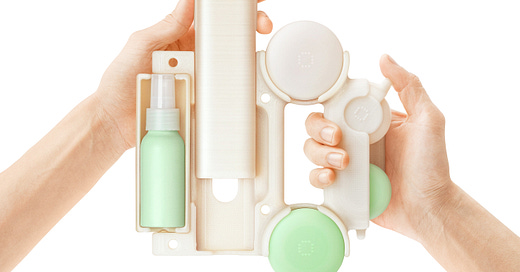



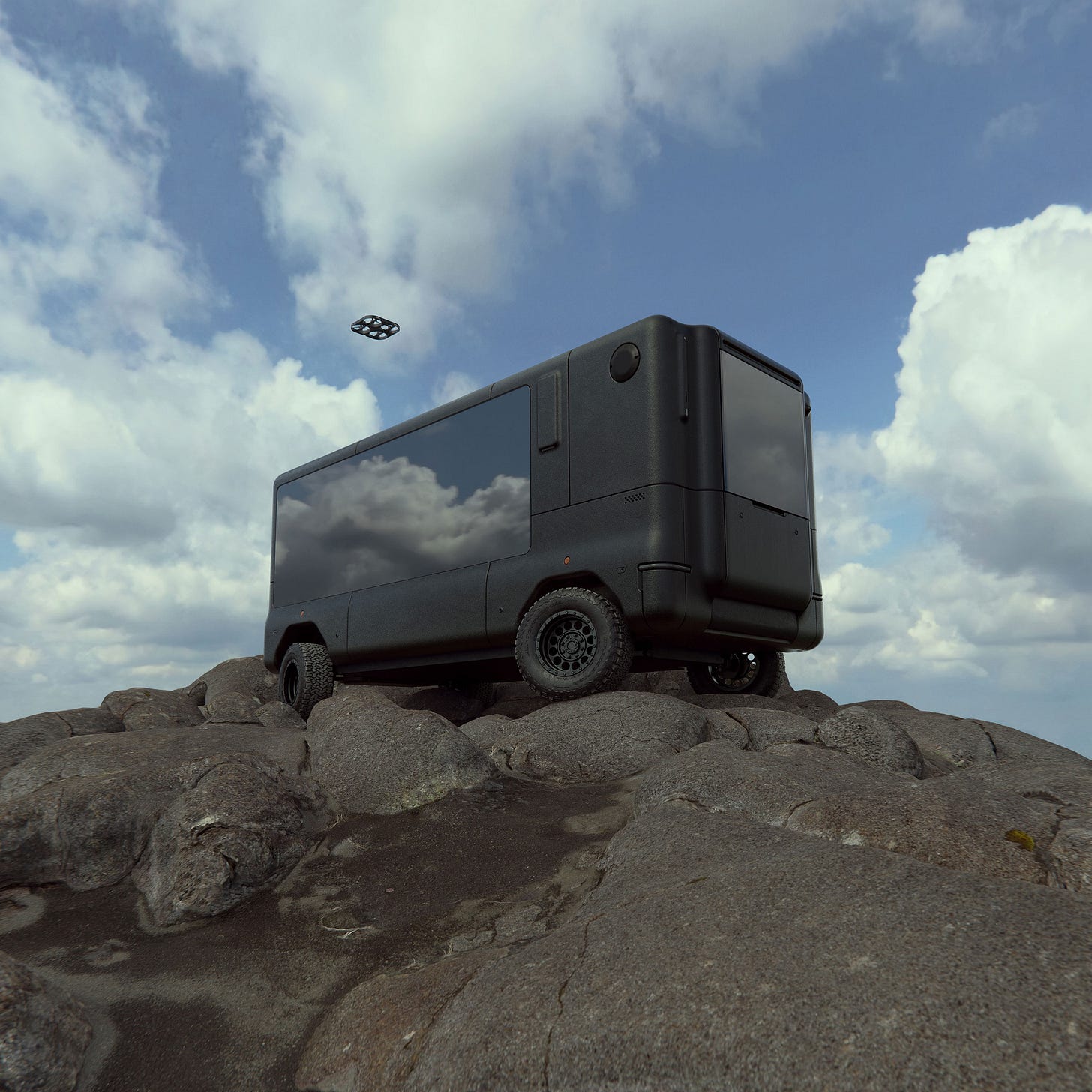


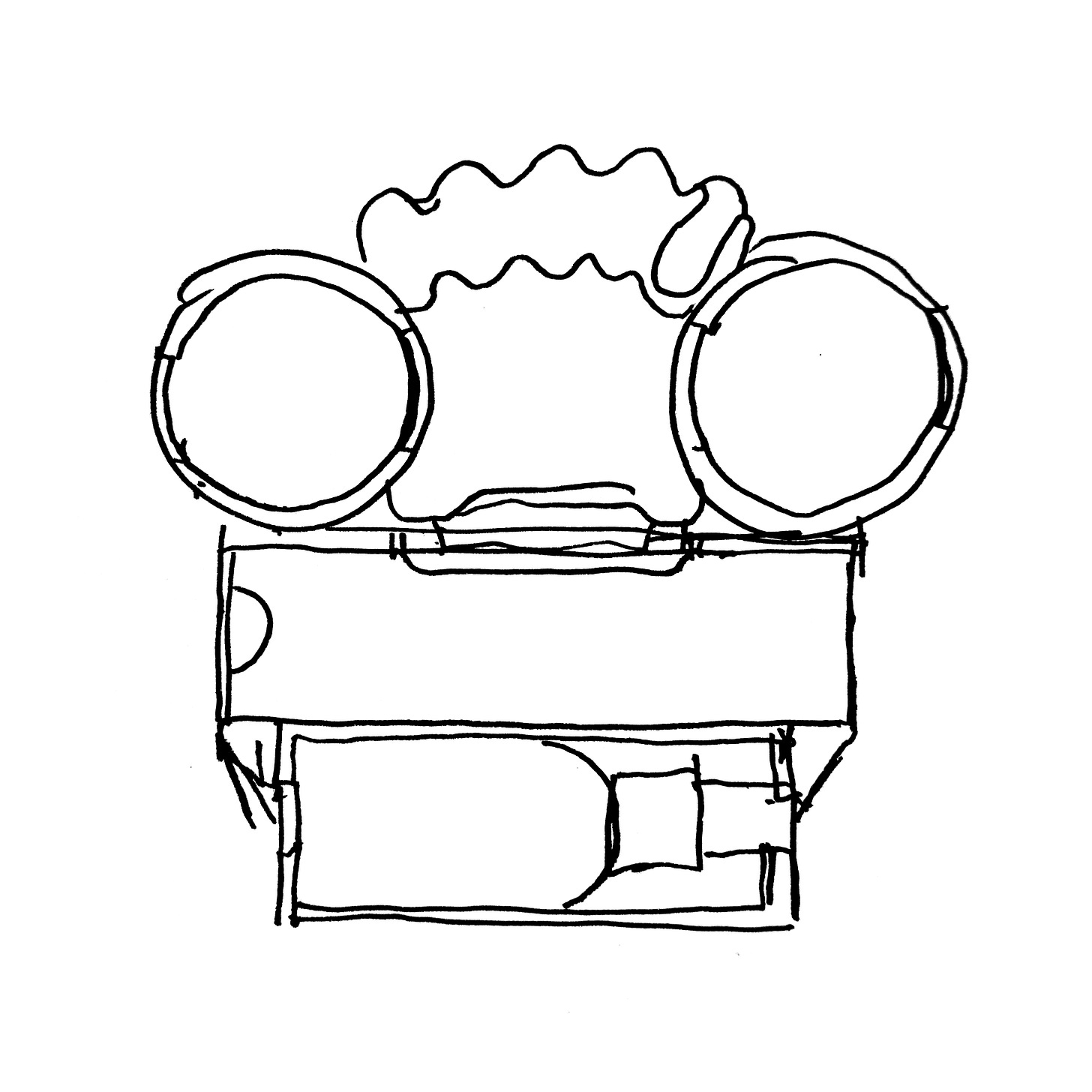

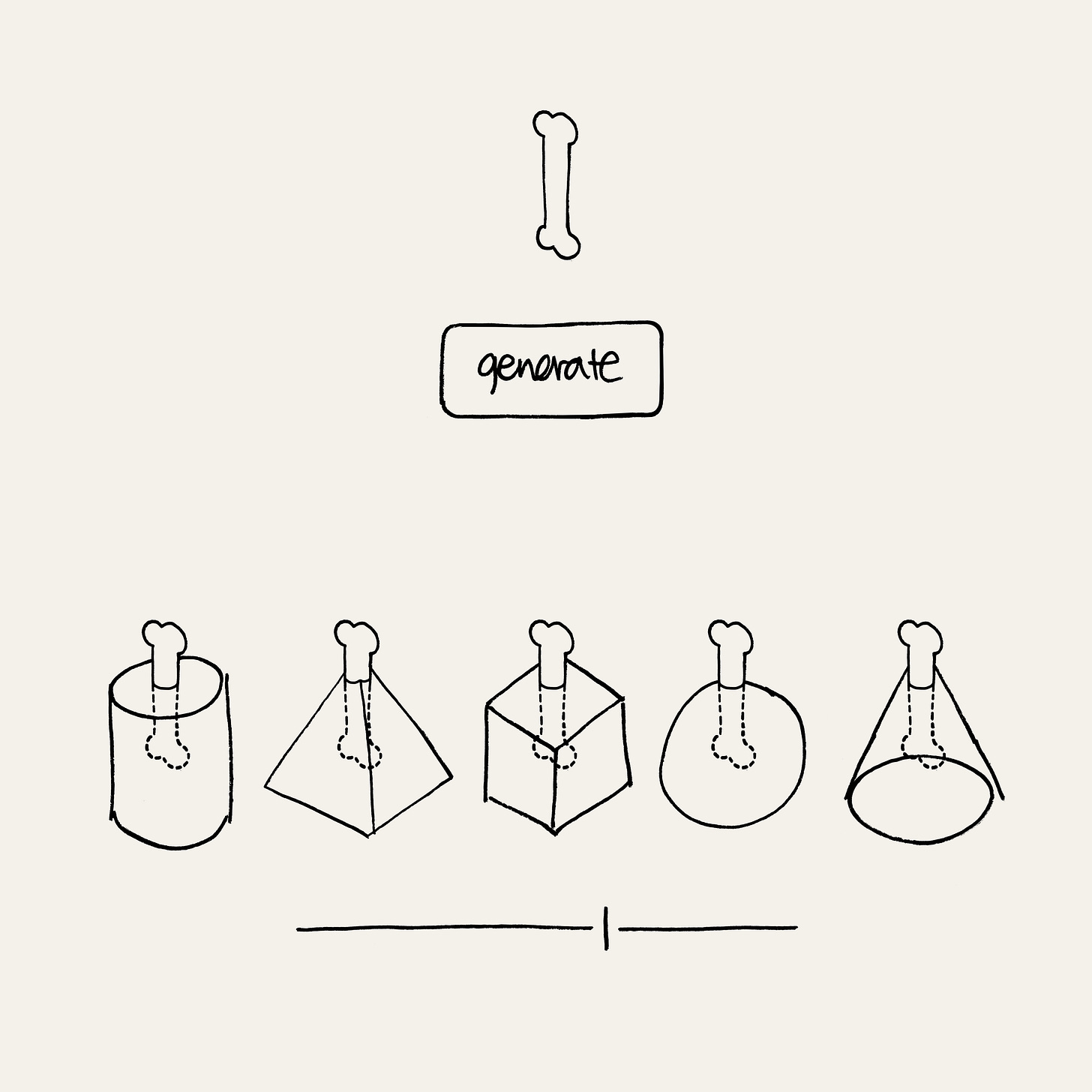

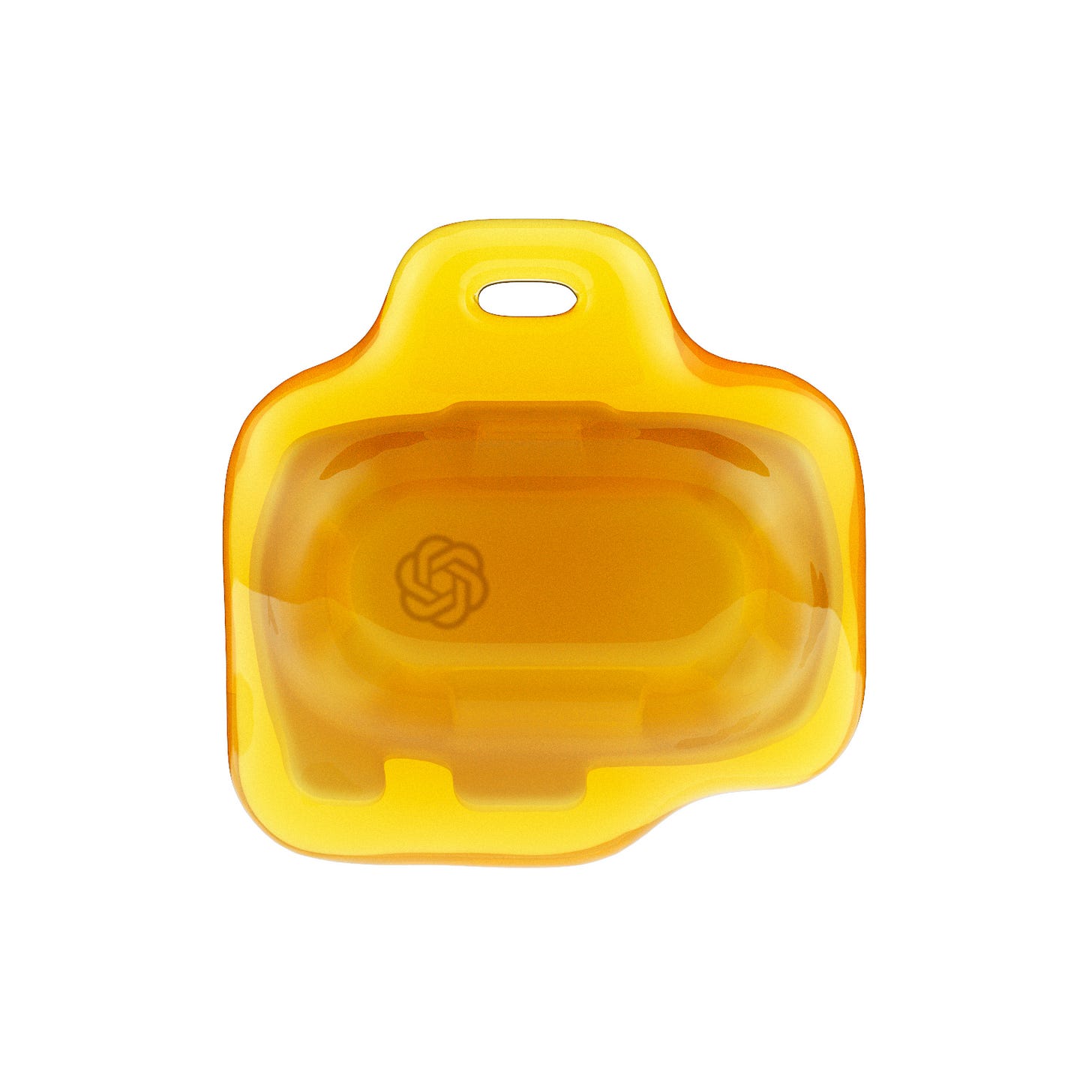

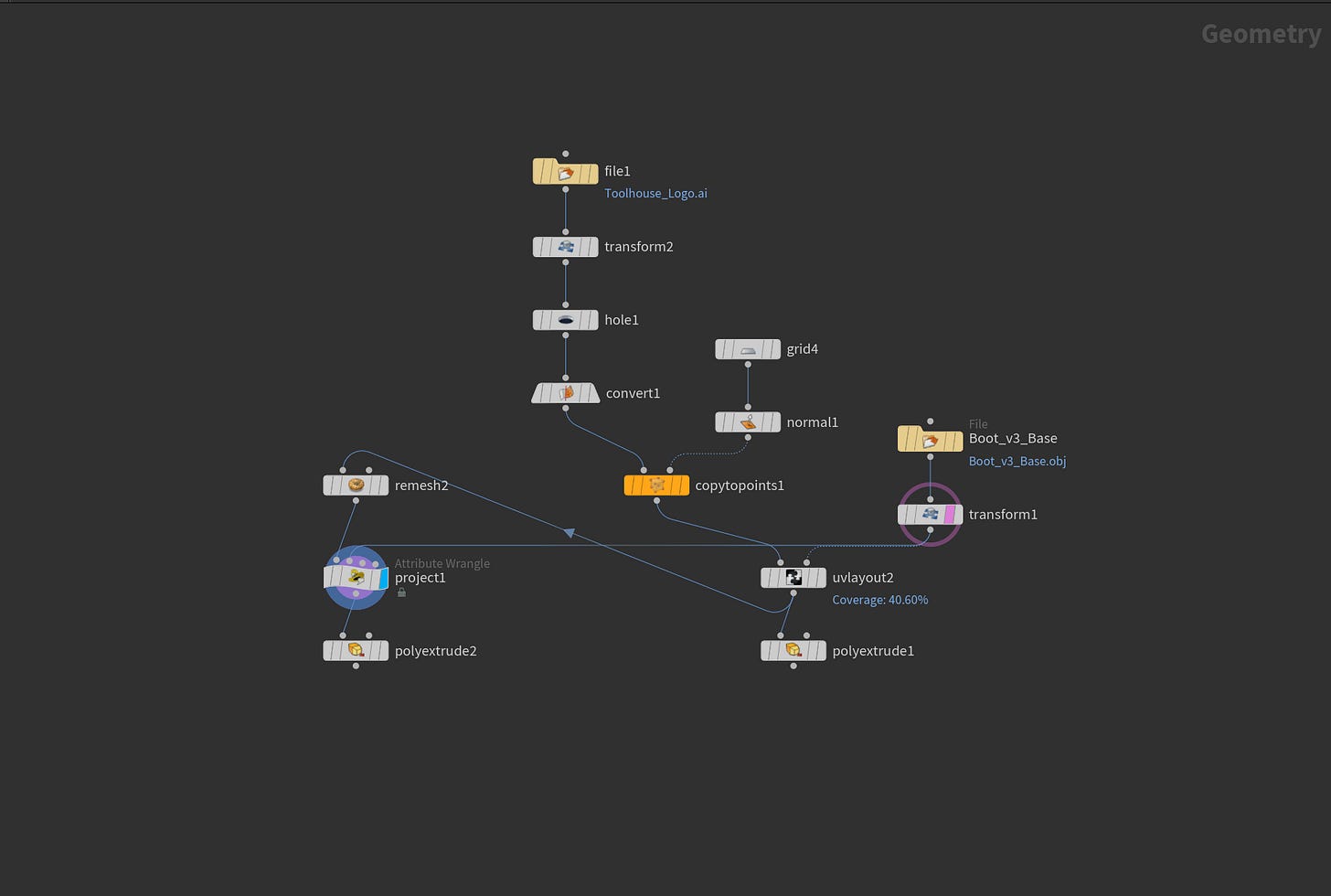
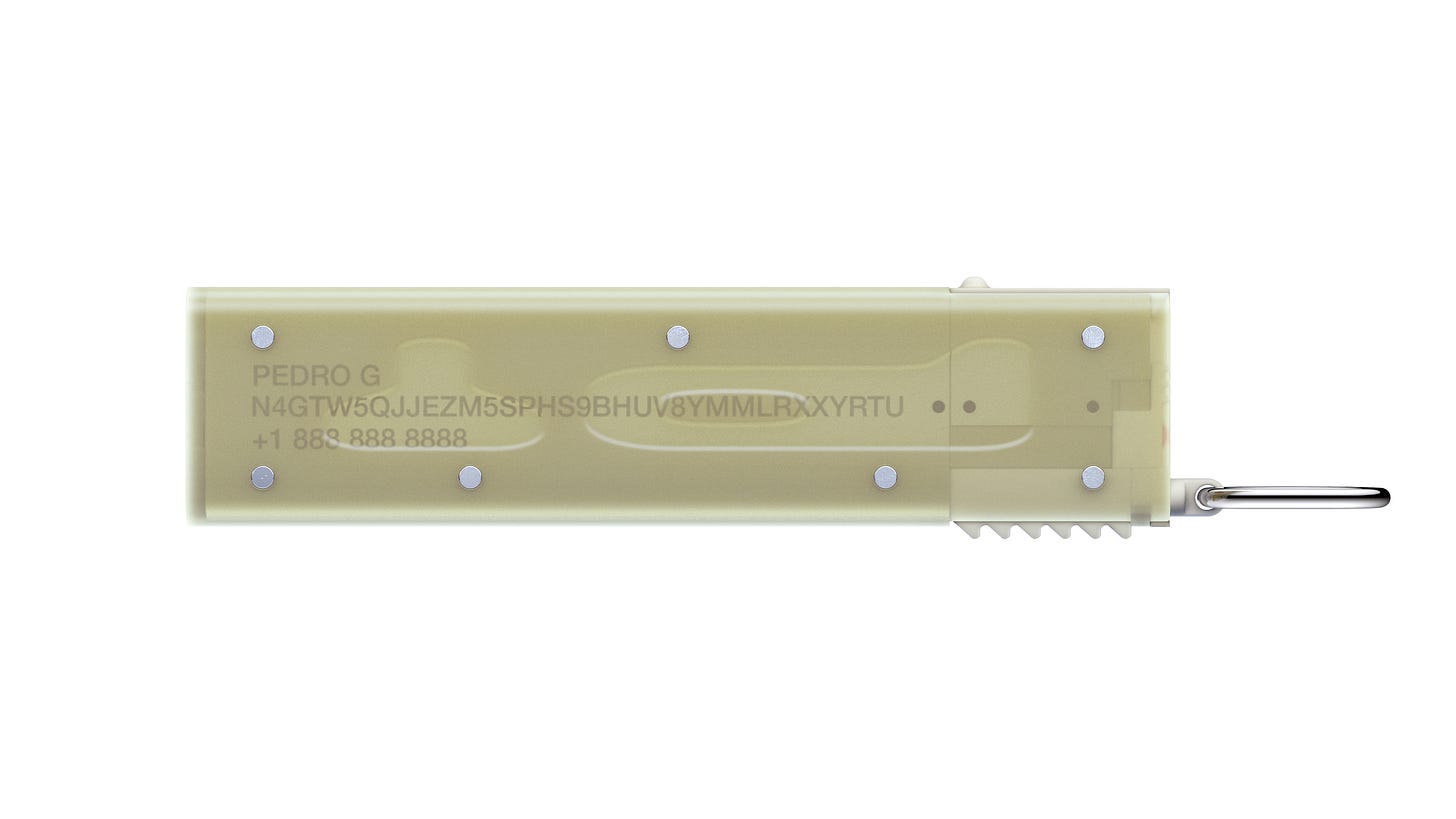
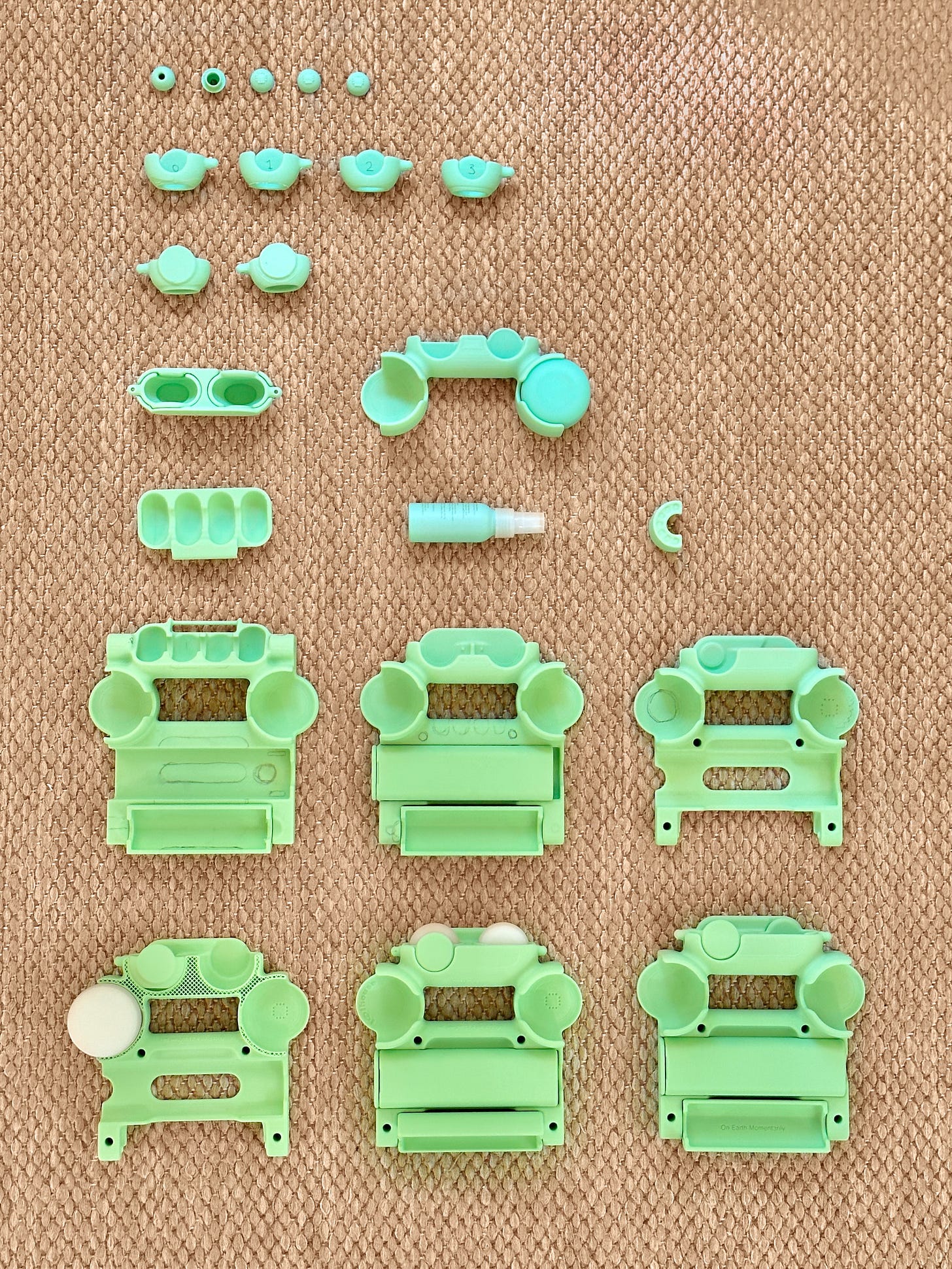



Would love some captions on the photos to know what I’m looking at!